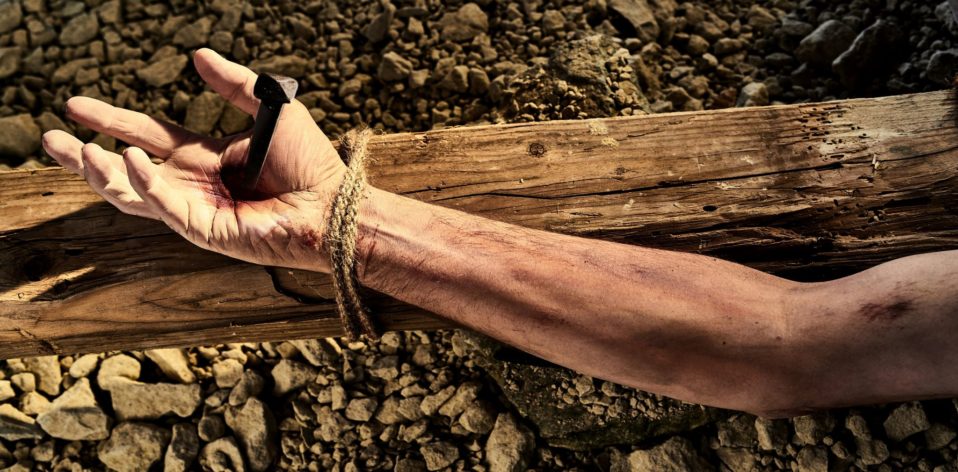The ancient Romans executed tens of thousands by crucifixion in their vast empire. By all accounts, crucifixion was a torturous means of death, intended to cause its victims maximum suffering and humiliation.
As Roman soldiers drove nails into Jesus’ body and gambled at the foot of His cross, families and Temple priests were slaughtering lambs by the thousands in preparation of the Passover celebration. Priests ceremoniously flung lambs’ blood all over the Temple court as they chanted the Hallel—a verbatim recitation of Psalm 113-118.
Perhaps Jesus could hear snippets of the chants as He hung outside Jerusalem’s walls. Chants such as: “Precious in the sight of the Lord is the death of his faithful servants” (Psalm 116:15 NIV). Or Psalm 116:3—“The cords of death entangled me, the anguish of the grave came over me; I was overcome by distress and sorrow.” Or Psalm 118:22—“The stone the builders rejected has become the cornerstone.”
While the skinned lambs were being roasted for food, they hung on hooks by their front legs in the shape of a cross. At the ninth hour, as Jesus took His last breath, many Temple lambs would also have died. God offered His only Son, the Perfect Lamb, for us: “For God so loved the world that He gave His only begotten Son, that whoever believes in Him should not perish but have everlasting life” (John 3:16 NKJV).
In this era of rising global anti-Semitism, it is critical that Christians understand the truth about who is responsible for killing Jesus. Tragically, over the centuries, the Jewish people have wrongfully suffered the blame. There were many accomplices involved—Judas, the Chief Priests, the Sadducees, Herod Antipas, Pontius Pilate, and Roman soldiers—and it is abhorrent to place the blame of Jesus’ death on an entire people, a people to whom Jesus Himself belonged.
The Chief Priests and Sadducees, who handed Jesus over to Pontius Pilate, were corrupt leaders in Jerusalem who enjoyed the privileges of wealth and power for their collaboration with Rome. Their motivation for killing Jesus had far more to do with eliminating a potential threat to that wealth and power than anything theological.
Moreover, Jesus’ death and resurrection were part of an inexorable and inevitable redemption plan from the heart of God—a plan no one could stop.
Recall Jesus’ words: “I lay down My life that I may take it again. No one takes it from Me, but I lay it down of Myself. I have power to lay it down, and I have power to take it again. This command I have received from My Father” (John 10:17-18 NKJV).
PRAYER
Father, thank You for making a way for us to be redeemed through Your Son’s sacrificial death on the cross.




Post a comment